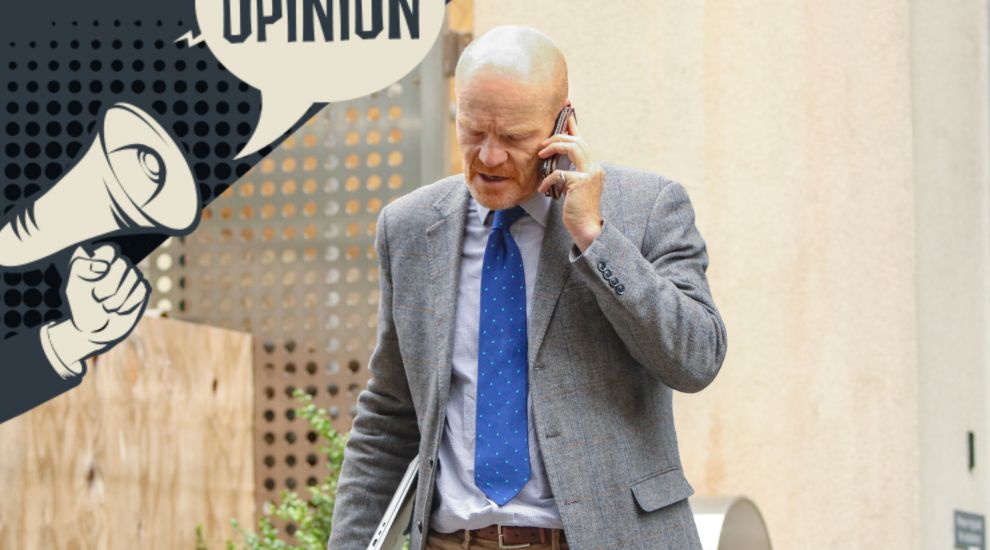


GST lost, alternative revenue raising solutions were dismissed and an early general election has been suggested.
Deputy Gavin St Pier gives his opinion on what he considers to be both a predictable and unprecedented States’ debate:
The third tax review debate was entirely predictable: four extended days of debate on a raft of amendments, followed by a very short, guillotined general debate and series of votes on the final propositions, which produced few surprises. In particular, of course, re-affirmation that this Assembly will not approve GST on the terms presented to it.
All attempts to provide alternative revenue raising measures, including a second and revised package of measures from the Fairer Alternative team, territorial corporate taxation from Deputy Parkinson and a higher rate of personal income tax from Deputy Trott. The politically astute response to the political brick wall Policy & Resources was facing, would have been to seek compromise and work at least some elements of these alternatives into their package. That way, they could have claimed ownership of any affirmative votes at the end of debate. Instead, the committee seemed to prefer a purist approach, which is admirable at one level but ignores the idiom that ‘politics is the art of the possible.’ A scorched earth, our-way-or-no-way style left the Assembly feeling it was being bludgeoned to accept a proposal they had rejected only six months ago.
Deputy Matthews’ amendment, which would have stopped the Sixth Form Centre being re-located from Les Varendes up the road to Les Ozouets was defeated. In an extended debate, all sorts of claim and counterclaim were being bandied around on both sides on space availability and costs. Although the Committee for Education, Sport & Culture (ESC) managed to ensure the Assembly held the line in supporting their policy which requires the building of a single post-16 site, only a couple of hours later, it was all for nought, as the Assembly failed toprovide any funding for this project. One can’t help wondering whether, if ESC had been willing to compromise on their model, the quid pro quo might have been the Assembly’s willingness to fund the revised project with additional borrowing. ESC had shown their loyalty to P&R by throwing all their eggs into the GST basket. This was always going to be a high risk strategy, as it needed P&R’s package to succeed in order to fund ESC’s project. By contrast, Deputy Brouard demonstrated his political longevity and savvy by lodging and then winning an amendment to provide alternative funding options that will allow the hospital modernisation to proceed.
Despite it being pretty obvious that if the main proposals failed, the search for a solution was going to need to continue, the Assembly refused to support an amendment to create a special purpose committee to do the work, rather than simply handing it back to the same committee, P&R, that had failed three times to find a solution. Perhaps inevitably, the Assembly was less resistant to other more peripheral amendments. For example, Deputy Taylor succeeded in getting support for his argument that more scrutiny and due diligence was required before agreeing to provide £35m of public money into the much needed Leale’s Yard redevelopment. The personal assaults on Deputy Taylor by some, implicitly questioning his motives and integrity, did not win through against the less emotive and more logical argument that P&R had already committed to presenting a policy letter which would consider the due diligence of the project’s counterparties. Deputy Kazantseva-Miller with her usual forensic style, was able to garner support for her argument that to better inform future decision making, more data is required to understand government’s future capital spending requirements, as well as contractors’ capacity and constraints given other projects, including the private sector and affordable housing.
Less predictable is what happens next. We are in an unprecedented position. Never before has a committee lost its flagship policy - arguably three times in two years, but indisputably twice in six months. It would be an honourable response for the committee to resign and either seek re-election if they so wish or allow others to take the reins. P&R have demonstrably been unable to provide the leadership expected from its position as the most senior committee. There are many reasons for this, including political inexperience. That does not mean that others would be unable to lead for the remainder of this term. In any event, we do not have a tradition or easy mechanism for triggering an early election, which would disrupt the work of those committees that have been functioning effectively and have a large programme still to deliver. Whilst many members of the public might welcome the idea of an early election, it’s by no means certain there are a majority of members ready to vote to terminate their own terms of office. If members of P&R choose not to resign, a Motion of No Confidence seems inevitable. (Indeed, in any prior Assembly, they almost certainly would already have faced this sometime ago, along quite possibly, with one or two other committees.) It’s not beyond the range of possibilities that a Motion of No Confidence could fail, leaving the very same P&R in place who apparently want but might be unable to deliver an early election. Such a walking dead government would be a truly absurd result, but perhaps no more so than one that heavily loses its tax reform package and re-presents it six months later.